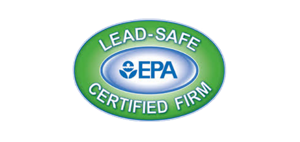It’s that time of year again, that time of summer that all Floridians know so well, the start of Hurricane Season. This year, NOAA predicts 13 to 19 named storms between June 1 and November 30; and six to 10 of those storms are predicted to reach hurricane strength. The timing of these storms is unfortunate as experts worry that many Floridians may not be prepared for their arrival.
In previous years, most Floridians have heeded warnings and made early preparations to ready their homes for the impending hurricane seasons. But this year is like no other that’s come before it. In the past, as Floridians had been preoccupied with preliminary storm prep, trimming trees, cleaning gutters, and clearing debris from properties, the nation went about their own lives with little more than an occasional glance at the southeast corner of the nation. Yet 2020 is a year like none of us has ever experienced.
Secretary of Commerce Wilbur Ross said, “As Americans focus their attention on a safe and healthy reopening of our country, it remains critically important that we also remember to make the necessary preparations for the upcoming hurricane season. Just as in years past, NOAA experts will stay ahead of developing hurricanes and tropical storms and provide the forecasts and warnings we depend on to stay safe.”
Preparing for hurricane season is important to do every year, but it is critically important to prepare this year. Some are concerned that many Floridians have been so preoccupied with the Covid-19 threat that they may not stay as vigilant during the 2020 hurricane season. Meanwhile, much of the Atlantic’s waters have been warmer than usual, as of late May. The Gulf of Mexico is also several degrees warmer than its average temperature, given the hot temperatures and the lack of rain in the Southeast. Climate models have suggested that most of, if not the entire, Atlantic Basin will be warmer than usual during the peak of the 2020 Hurricane Season. Some worry that these factors will create the perfect storm, no pun intended, and that many Floridians will be caught unprepared when a hurricane makes landfall.
There are things that we can do now, before a hurricane has been named and is bearing down upon us. Following is a list of some of the preparations that will help all of us to be ready:
- Understand the risks – Learn your area’s flooding risk, previous flood history, and community hurricane evacuation routes. Knowing this helps you determine your risk factors and allows you to prepare for what may come. NOT SURE IF YOU’RE IN A FLOOD ZONE? Use FEMA’s Map Service Center, where you can enter your address to see your flood zone.
- Check your insurance – If you do not have flood insurance, get it now. Regular homeowner’s insurance policies do not cover flood damage caused by rising waters that originate outside your home. If you get flood insurance, remember that it could take up to 30 days for flood insurance to take effect and that insurance companies usually won’t write new policies when a named storm is on the radar.
- Take inventory of your personal property – Do this now, while there’s time, and while you can be organized and detailed. Inventory your personal property, both in writing, and in photos. In case your phone or camera gets lost or damaged, email the photos to yourself so you’ll always have an accessible online file of the files, along with your list of items.
- Secure your property – Fasten your roof with straps or clips to reduce lift damage. Prune trees and shrubs in your yard for more wind flow and less breakage. Replace gravel with bark or mulch. Clean and maintain rain gutters and downspouts. Reinforce garage doors to make them withstand powerful winds. Obtain an electric generator to run essential appliances if the power goes out. Learn how to shut off the main power and gas sources to your home and switch over to the electric generator.
- If you have a boat or other watercraft – Determine the safest place to keep it during the storm. Review your insurance coverage on the boat or watercraft.
- If you have a boat trailer – Move it inside a garage or else anchor it. Review your insurance coverage on the boat trailer.
- Create a family evacuation plan – Designate a meeting place for your family and determine routes to get there. Plan how to get in touch with your family members if separated. Have a backup plan in case cell phones go out. Plan ahead and know where you’ll go if you must evacuate, such as a shelter. Make sure all family members know the plan. Make sure adults are specifically assigned children, elderly, persons needing extra help, or pets so that no one gets left behind in a chaotic exodus.
- Create an emergency kit – Be sure to include enough provisions for at least three days, per person. Include medications for anyone who needs them, as well as pet supplies. Store copies of important documents, such as proof of ownership of any property, identification, and insurance policies, in your emergency kit. Back up the data on your electronic devices to ensure it is secure in case your computer, or other devices, are damaged during the hurricane.
- Keep non-perishable emergency supplies on-hand –
- Extra batteries
- Candles or lamps with fuel
- Matches (keep these dry)
- Materials and tools for emergency home repairs–such as heavy plastic sheeting, plywood, a hammer, etc.
- Prescription drugs for all family members AND pets
- A three-day supply of drinking water
- Food that you don’t have to refrigerate or cook
- First aid supplies
- A portable NOAA weather radio
- A wrench and other basic tools
- One flashlight per family member
- Pet food, pet anxiety shirt, pet chews
- Plastic tub/container/ice chest that floats and can double as a pet raft in a flood
- Mosquito spray
- Books/Crosswords/Games/Toys for kids/Crafts to pass the time
When the hurricane comes ashore, take comfort in the knowledge that DRY FIRST’s professionals are standing by, ready to be dispatched to your homes and businesses. WE also make our own hurricane preparations every hurricane season. As a named hurricane bears down on the Space Coast, our teams shift into Emergency Mode, preparing our vehicles, equipment, communication methods, and personnel. Semi-trailers of additional drying equipment are activated and brought into our warehouse to meet the impending demand. Our company owners and specialty crews remain in Brevard so that we are here, in the county, and at the disposal of our friends and neighbors, as soon as the storm has passed.
If the storm passes and you’ve got flooding from groundwater, roof leaks, burst pipes, or sewage backups, CALL DRY FIRST; and as soon as the roads are open, our Mitigation Crews will immediately be on the way to you. We’ll take care of the flood damages, dealing with your insurance adjustor, the reconstruction, everything!






